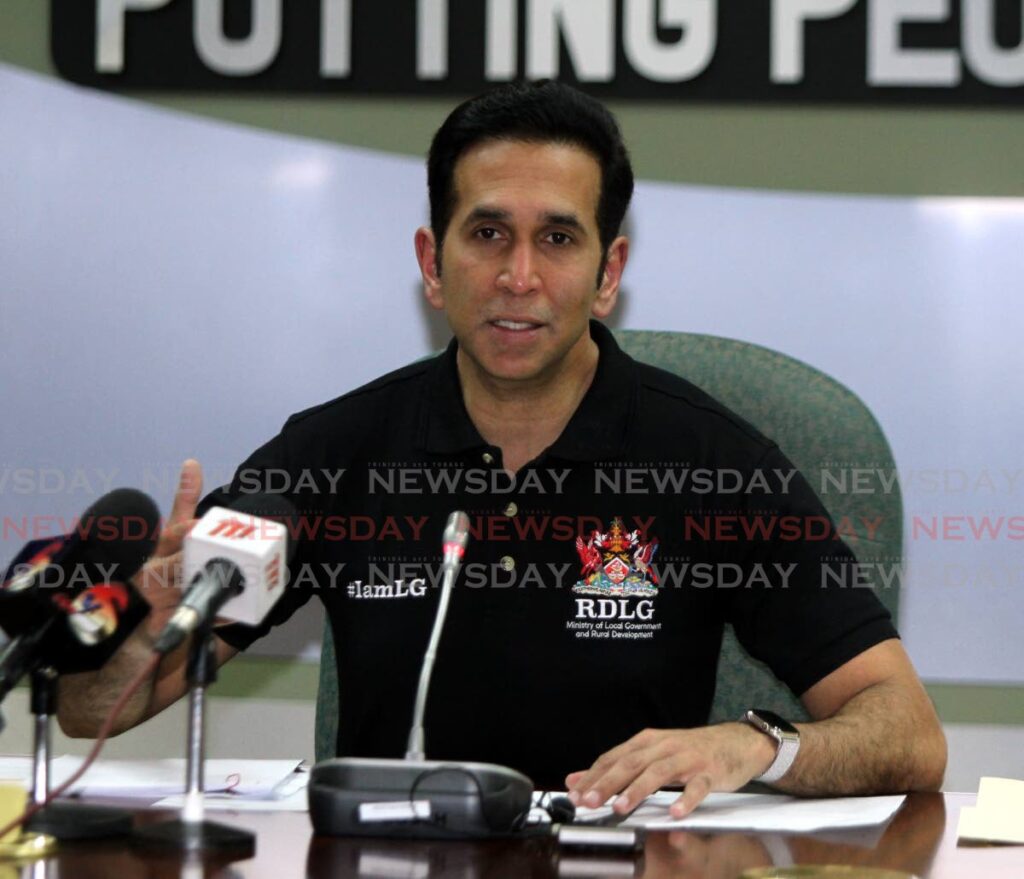UNC wants details on local government reform

THE Opposition UNC wants answers from Rural Development and Local Government Minister Faris Al-Rawi about what kinds of improvements could occur at local government level by extending the life of local government corporations for one year.
At a news conference on November 3, Rural Development and Local Govt Minister Faris Al-Rawi said under the Miscellaneous Provisions (Local Government Reform) Bill 2020 – which will be partially proclaimed on Tuesday – the terms of all councillors and aldermen will end on December 3, 2023.
He said this extra year provides time for the rollout of the local government reform package and there is a three-month period after this date within which local government elections can be held. Prior to this change, the councils' term would have ended on December 3, this year, and elections would have been due within three months.
Al-Rawi said, “Within the extra year, we will be able to build out all the relevant sections of the law, including taking councillors who are executive members and making them into secretaries similar to the THA; operationalising 13 separate divisions inside local government divisions, including planning, engineering, audit and accounting, sporting and recreation, etc.”
He also said under the amended Municipal Corporations Act, local government corporations would be able to handle the collection of residential property tax in their jurisdiction.
On Saturday, UNC vice-chairman Khadijah Ameen said, "All of these are issues the minister should lay out clearly and concisely to the public and go the local government fraternity."
Ameen, who is also St Augustine MP and former chairman of the Tunapuna/Piarco Regional Corporation, believed Al-Rawi did not do that "because this process has not been well thought out."
She claimed, "The government might find itself in more hot water than they are trying to avoid by delaying the (local government) elections."
Ameen reiterated the UNC's call for the elections to be held on time.
"The new term should be the beginning of the new terms and conditions for councillors and aldermen including full time executive councils, new salary and the four year term."
Penal/Debe Regional Corporation chairman Dr Allen Sammy and Princes Town Regional Corporation chairman Gowrie Roopnarine were also uncertain about what benefits could be gained by the one year extension of local government corporations' lives.
Sammy said, "Not a clue about anything. They’ve not shared anything, not even virtually."
He added the corporation's budget and programmes remain unchanged and it is "pressing on with its agenda for the delivery of goods and services to our people."
Roopnarine said, "Just imagine there are a few councillors who indicated that they would not be going back for the local government elections knowing that their term was coming to an end on December 3."
He added some of these people "already made arrangements to begin with new jobs in January."
Roopnarine said there is no information about the salaries which local government councillors and aldermen could receive if they are working full time.
In a statement on November 4, the UNC-controlled Couva/Tabaquite/Talparo Regional Corporation (CTTRC) claimed to be the lowest local government corporation in Trinidad after the 2022/2023 budget was passed in Parliament last month.
CTTRC chairman Henry Awong said the CTTRC was allocated $104,592,500 in for fiscal 2023 fiscal yea while the PNM-controlled San Juan/Laventille Regional Corporation (SJLRC), was allocated $173,900,600 in 2023.
Awong added the CTTRC has a geographic area that is three times that of the the SLRC, although both corporations each have 14 electoral districts.
He said the corporation will make an urgent request for an increase in funding to Finance Minister Colm Imbert.

Comments
"UNC wants details on local government reform"